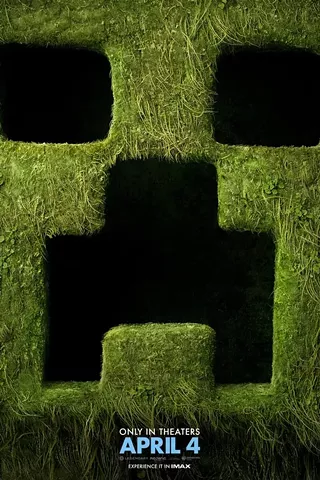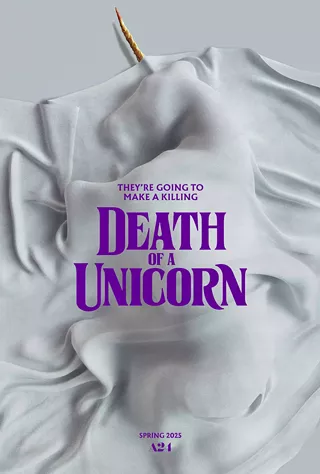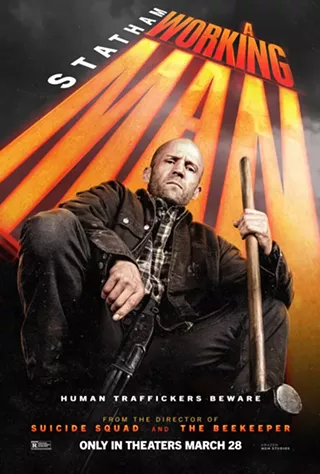In addition to the "Premiere Showcase" of new features and documentaries, highlights of this year's festival include programming on the intersection between science and cinema ("Science and Spectacle"); a showcase of pioneering filmmakers entitled "Cine Chicano"; restored and newly discovered films "From the Archives"; an off-site "Video Saloon"; and controversial "Movies at Midnight."
One of the best ways to get a feel for the festival's diverse offerings in one sitting is at this weekend's Reel Frontier Film and Video Competition, a two-fold showcase of 12 short works screening Thursday and Saturday midtown at the Loft Cinema, and downtown at the Screening Room. Herein you'll find not only some wonderful filmmaking, but a glimpse into what Scalinger calls "a whole new world" in indie film.
"Short film is in an interesting transition now," he says. "In America, shorts have been viewed primarily as a calling card for a feature (film) while elsewhere, in Europe for example, the short film is a celebrated art form." But, as Reel attests, times may be changing.
"Dirt" condenses an unusual dinner party into a four-minute eco fable in lovely 35 mm black-and-white. Whoever presumes humble earth isn't a beautiful subject will be surprised by Portland director Chel White's optical illusions, artful depth of field and time-lapse photography. From sculpted plates of food to the flickering light and music of its old-time titles, the presentation alone turns the ordinary into extraordinary.
Of the remaining four American shorts, only two -- Dane Picard's "Who, Me?" and Courtney Byrd's "Graham's Diner" have the feel of a Hollywood Hallmark card -- which is not intended as criticism. Rather, each embraces a slick, stylized format that's immediately familiar, while delivering a palatable punchline story that proves formulaic can still be fun.
Picard's five-minute discourse on censorship simultaneously plays with the idea of the myopic viewpoint while maximizing its melodramatic feel with high-contrast black and white, skewed angles and "revealing" closeups from its 35 mm lens. It's a film that says on multiple levels there's more to each scene than first meets the eye.
It's a theme repeated in the 22-minute "Graham's Diner," a Scrooge-like fable about second chances. While this color film has the surreal, slow-moving feel of the hot, L.A. day on which it takes place, it also pokes fun at the very cine "magic" it creates. Neither edgy nor amateur, these are films that raise their hands to the industry in hopes of being called upon, and they've done their homework so as to have a smart answer in store.
If they are the students, then the class clowns are compatriot filmmakers Greg Pak and Monika Mitchell. Though more low-budget lark than art film, each of these in its way shows an attention to detail that belies its not-so-serious subject matter. Pak's Blair Witch parody, The Penny Marshall Project, pits the eponymous director alongside a fictional Francis Ford Coppola and Akira Kurosawa for 12 minutes of sheer comic horror as the trio "disappears into the woods near Marshall's summer home" to document on digital video their collective search for an original idea. A Web-savvy New York entry, it screens for the first time anywhere at this weekend's festival.
The predatory Night Deposit (16 mm, color), "an updated twist on the world's oldest profession," is a similar Internet success story. A project the filmmaker imagined would be seen only by friends and family, it received a million hits on the Slamdance.com website, and won the off-Sundance Slam festival's Anarchy Online Film Competition with 200,000 votes. It's that kind of attention that leads a hopeful Scalinger to say, "The Internet could be the savior of short film...as an exhibition space for filmmakers, and as a vehicle for creating an unprecedented, worldwide audience."
It's on the flip side of this equation that local audiences are in for a real treat. While the vitality of the European feature film market is increasingly threatened by audiences defecting to the ranks of the American blockbuster, the short film has selectively embraced American influences while remaining true to its independent, and national, character. From the way Germany's Mosquito shrinks a flying 16 mm camera down to a near-invisible pest's polygonal perspective, to the explosive impact of Ireland's Headwrecker, these films are full of simple pleasures and foreign textures that will inspire as well as entertain.
It's a quality equally shared by the program's Australian entry, Freezer, which goes one step further on the multi-national scale by imbuing the Aussie practical joke with the music and melodrama of American film noir, with the subjective reality of German Expressionism. This claustrophobic, sepia-toned narrative further confounds our sense of what's on the "other" side with an abstract soundtrack of effects, frenetic whispered voices, insectile violins and industrial machinery.
Quite apart from the rest are the two Canadian entries, each adapted from a literary short story and directed by Corren Mayrs. I won't say they're the best, but they are my favorites, varying in length from nine to 29 minutes. Both her Canadian landscapes and female protagonists are saturated with color, with character development that is at once spare and meticulous. Mayrs' filmmaking is as feminine as it is feminist, managing a luscious and lingering visual sense that recalls Jane Campion, while maintaining her own compelling balance between humor and intellect. Cinematic, poetic and transcendent, they move the viewer in a way the others, however enjoyable, do not.
The Reel Frontier screens in a two-part program opening Thursday, April 6, and continuing on Saturday, April 8. Reel 1, a collection of short comedy and drama, screens at 8 p.m. Thursday, April 6, and again at 4 p.m. Saturday, April 8, in the upstairs theater at The Loft, 3233 E. Speedway Blvd. Reel 2, a program of innovative international shorts, screens at 8 p.m. Thursday, April 6, and again at 3:30 p.m. Saturday, April 8, at The Screening Room, 127 E. Congress St.
Festival passes ($20 to $150) and programs are available at the Arizona International Film Festival office, 113 E. Congress St. Single tickets are $5 at the door. Call 62-FILMS for tickets and information.










